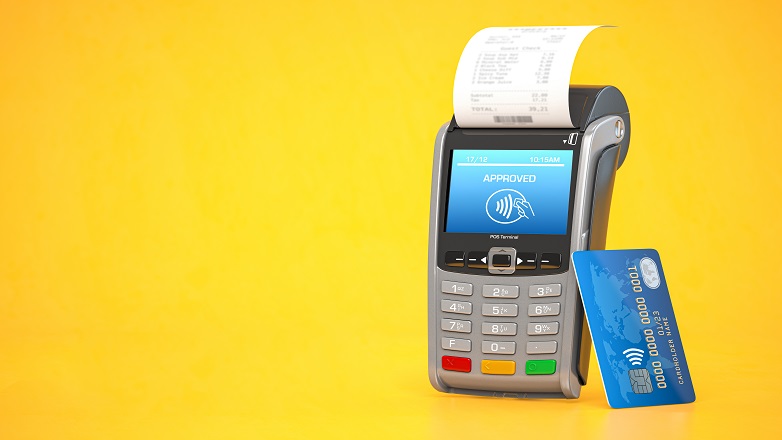Australia: Payment surcharges: the excess factor
Businesses that choose to impose a payment surcharge on customers who make a payment using a prescribed credit, debit or prepaid card must ensure that the level of the surcharge is not excessive, otherwise, it may face heavy penalties under new laws.
On 25 February this year, the Competition and Consumer Amendment (Payment Surcharges) Act 2016 came into force, inserting a new part into the Competition and Consumer Act 2010, banning excessive payment surcharges. The key objectives of the Act are to ensure that any payment surcharges are not excessive and reflect the actual cost of using the payment methods for which they are charged, and to establish the Australian Competition and Consumer Commission (ACCC) as the primary enforcement agency for the ban.
The Reserve Bank of Australia (RBA) has released three Standards that will operate alongside the Act to provide clarity and guidance, including specifying the payment types captured under the Act.
What is a payment surcharge?
A payment surcharge is either, an amount charged in addition to the price of goods or services for processing payment for the goods or services, or an amount (however described) charged for using one payment method rather than another. For example, a 2 per cent surcharge for use of a particular payment method, which is expressed or implied to be compensation for the cost of accepting the card, will be a payment surcharge.
A payment surcharge will also include those charges that may be described in a way that implies they are unrelated to particular payment methods, but in substance are so related. For example, if a charge is described as a 'booking', 'service' or 'transaction' fee but is imposed as a result of the payment being made by a credit card, rather than by cash or direct debit, such a charge will be a payment surcharge.
However, any additional fees that will apply equally regardless of the payment method used, and do not purport to be for the purpose of compensating for the cost of accepting a payment, will not be a payment surcharge and will not be captured by the Act. However, such payments will remain subject to the operation of other parts of the Competition and Consumer Act, for example, those provisions relating to false or misleading representations, including about price.
In what circumstances will a payment surcharge be excessive and prohibited under the Act?
A payment surcharge will be excessive if the surcharge exceeds the permitted cost of acceptance as defined by a RBA Standard. For example, a charge will be excessive if it exceeds the fees charged by a bank or other provider (which includes, but is not limited to, merchant service fees, fraud prevention fees and fraud related charge back fees, terminal rental fees and processing fees charged by the provider).
A surcharge must be relative to the genuine cost incurred by a merchant in accepting a payment by card.
What payment types are included in the ban?
The RBA Standards set out the payment types covered by the ban including Eftpos (debit and prepaid), Visa (credit, debit and prepaid) and American Express 'companion cards' (i.e. American Express cards issued through an Australian financial service provider, rather than directly through American Express).
The payment types that are not covered by the ban include, BPAY, PayPal, Diners Club cards, UnionPay and American Express cards issued directly by American Express, cash and cheques.
When does the ban start?
The ban applies initially to large businesses from 1 September 2016. For the purposes of the Act, a 'large business' is one that satisfies at least two of the following thresholds, taking account of the business and its related bodies corporate as at June 30, 2015:
- Consolidated gross revenue for financial year ending 30 June 2015 of $25 million or more;
- Value of consolidated gross assets at 30 June 2015 of $12.5 million or more;
- Fifty or more employees (whether full time, part time, casual or otherwise) at 30 June 2015.
Those businesses that do not satisfy at least two of the above thresholds are not a large business, and the ban will not apply to those businesses until 1 September 2017.
Consequences of a failure to comply
If the ACCC has reasonable grounds to believe that a business has charged a payment surcharge which is excessive, it can issue an infringement notice to the business for up to $108,000 for a listed corporation, $10,800 for a body corporate and $2,160 for an individual. The ACCC can also take court action against a business, in which it can seek pecuniary penalties of up to $1.1 million for a body corporate or $233,100 for an individual.
The ACCC can also seek redress on behalf of consumers, as well as seeking injunctions and various other orders, i.e. probation orders and community service orders.
An individual who suffers loss or damage due to a breach of the ban can also bring an action seeking damages.
Tips to help businesses comply
- Determine whether the payment types you make available to your customers are covered under the Act and whether you are a 'large' or 'small' business, so you can determine when the ban will commence for your business;
- Check that any credit/debit processing fees you may charge your customers reflect the actual costs of acceptance of that payment method – all standard card acceptance services which are supplied to you by your acquirer or payment facilitator should be set out in the monthly statements from those providers which outline your cost of acceptance for each applicable payment type expressed as a percentage of the value of a transaction – check RBA guidance rates on the www.rba.gov.au website;
- Determine whether any 'booking fees' or similar charges you may charge customers are captured by the Act;
- Ensure that you are not making any other false or misleading representations about the price of your goods or services and make sure you are adequately disclosing the nature of the fees and the circumstances in which the fees apply.


